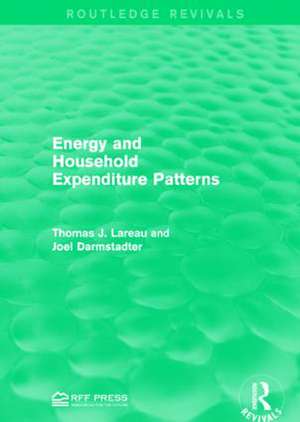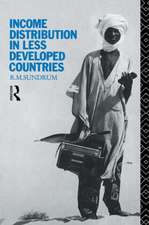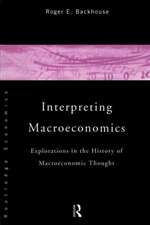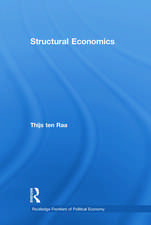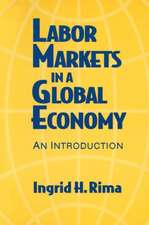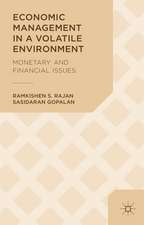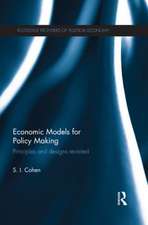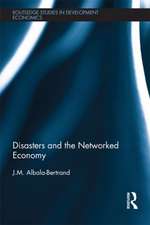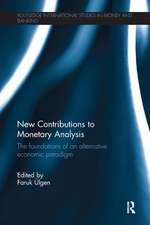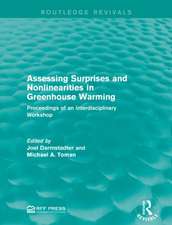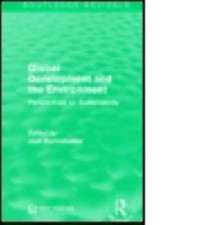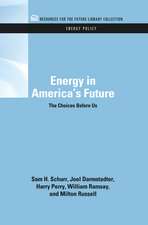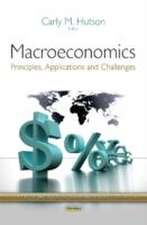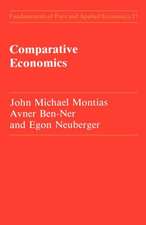Energy and Household Expenditure Patterns: Routledge Revivals
Autor Thomas J. Lareau, Joel Darmstadteren Limba Engleză Paperback – 14 mar 2017
Din seria Routledge Revivals
- 9%
 Preț: 801.71 lei
Preț: 801.71 lei - 8%
 Preț: 432.64 lei
Preț: 432.64 lei -
 Preț: 153.83 lei
Preț: 153.83 lei -
 Preț: 230.80 lei
Preț: 230.80 lei -
 Preț: 309.79 lei
Preț: 309.79 lei -
 Preț: 258.73 lei
Preț: 258.73 lei - 9%
 Preț: 764.35 lei
Preț: 764.35 lei - 9%
 Preț: 903.42 lei
Preț: 903.42 lei -
 Preț: 311.18 lei
Preț: 311.18 lei -
 Preț: 357.45 lei
Preț: 357.45 lei - 9%
 Preț: 606.36 lei
Preț: 606.36 lei -
 Preț: 317.54 lei
Preț: 317.54 lei - 9%
 Preț: 764.30 lei
Preț: 764.30 lei -
 Preț: 257.01 lei
Preț: 257.01 lei -
 Preț: 238.40 lei
Preț: 238.40 lei -
 Preț: 259.48 lei
Preț: 259.48 lei - 9%
 Preț: 903.81 lei
Preț: 903.81 lei -
 Preț: 326.26 lei
Preț: 326.26 lei -
 Preț: 258.67 lei
Preț: 258.67 lei -
 Preț: 294.98 lei
Preț: 294.98 lei -
 Preț: 308.89 lei
Preț: 308.89 lei -
 Preț: 199.86 lei
Preț: 199.86 lei -
 Preț: 347.50 lei
Preț: 347.50 lei -
 Preț: 302.59 lei
Preț: 302.59 lei -
 Preț: 389.40 lei
Preț: 389.40 lei -
 Preț: 257.01 lei
Preț: 257.01 lei -
 Preț: 343.22 lei
Preț: 343.22 lei - 9%
 Preț: 640.91 lei
Preț: 640.91 lei - 9%
 Preț: 619.49 lei
Preț: 619.49 lei -
 Preț: 228.88 lei
Preț: 228.88 lei -
 Preț: 265.16 lei
Preț: 265.16 lei -
 Preț: 245.11 lei
Preț: 245.11 lei -
 Preț: 258.54 lei
Preț: 258.54 lei -
 Preț: 258.73 lei
Preț: 258.73 lei -
 Preț: 368.93 lei
Preț: 368.93 lei -
 Preț: 246.38 lei
Preț: 246.38 lei - 9%
 Preț: 832.08 lei
Preț: 832.08 lei -
 Preț: 258.67 lei
Preț: 258.67 lei -
 Preț: 286.99 lei
Preț: 286.99 lei - 18%
 Preț: 695.86 lei
Preț: 695.86 lei - 9%
 Preț: 934.96 lei
Preț: 934.96 lei - 5%
 Preț: 243.38 lei
Preț: 243.38 lei -
 Preț: 274.69 lei
Preț: 274.69 lei -
 Preț: 200.67 lei
Preț: 200.67 lei - 9%
 Preț: 638.62 lei
Preț: 638.62 lei -
 Preț: 259.69 lei
Preț: 259.69 lei - 9%
 Preț: 1038.47 lei
Preț: 1038.47 lei -
 Preț: 389.46 lei
Preț: 389.46 lei -
 Preț: 302.14 lei
Preț: 302.14 lei -
 Preț: 302.27 lei
Preț: 302.27 lei
Preț: 241.15 lei
Preț vechi: 288.81 lei
-17% Nou
Puncte Express: 362
Preț estimativ în valută:
46.15€ • 48.52$ • 38.13£
46.15€ • 48.52$ • 38.13£
Carte tipărită la comandă
Livrare economică 16-30 aprilie
Preluare comenzi: 021 569.72.76
Specificații
ISBN-13: 9781138953109
ISBN-10: 1138953105
Pagini: 180
Dimensiuni: 174 x 246 mm
Greutate: 0.45 kg
Ediția:1
Editura: Taylor & Francis
Colecția Routledge
Seria Routledge Revivals
Locul publicării:Oxford, United Kingdom
ISBN-10: 1138953105
Pagini: 180
Dimensiuni: 174 x 246 mm
Greutate: 0.45 kg
Ediția:1
Editura: Taylor & Francis
Colecția Routledge
Seria Routledge Revivals
Locul publicării:Oxford, United Kingdom
Public țintă
Postgraduate and UndergraduateCuprins
Foreword; Acknowledgments; 1. Guide to the Study and Major Findings 2. Dynamic Estimation of Consumer Demand 3.The Systems Method of Estimating Personal Consumption Expenditure 4. A Cross-Sectional Approach to the Analysis of Consumer Expenditures 5. Personal Consumption Expenditures in 2000 6. Energy Implications of the PCE Projections; Appendix A Estimation of Dynamic Model; Appendix B Systems Model Estimation; Appendix C Dynasim; Appendix D Development of Final Projections; Appendix E Input-Output Determinants of Energy Use From Final Demand; Appendix F Bridging Matrix; References
Notă biografică
Thomas J. Lareau, Joel Darmstadter
Descriere
Originally published in 1983, this study aimed to estimate the expected changes in household activities and how this would affect energy consumption in the country as a whole. Also discussed are implications of direct energy purchases and spending on energy goods in households as well as predicting the growth in energy consumption leading up to the year 2000. This title will be of interest to students of Environmental Studies and Economics.
